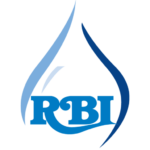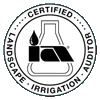Save Water with WiFi Controllers and Flow Meters
This article has been published online at danspapers.com
Utility rates are continually rising, including our water bills, which were recently increased in June by almost 3 percent. As more people strive for water conservation, Wi-Fi controllers and flow sensors (also known as flow meters) are essential to add to irrigation systems. These two devices allow for more efficiency and help maintain the health and longevity of your irrigation system by preventing issues from turning into serious problems.
Ways Wi-Fi Controllers Save Water:
Weather-Based Adjustments: Wi-Fi controllers can connect to local weather data to automatically adjust watering schedules based on real-time weather conditions. For example, if rain is forecasted, the controller can delay or skip watering, preventing unnecessary water use.
Soil Moisture Monitoring: Many Wi-Fi controllers can be integrated with soil moisture sensors. These sensors measure the moisture level in the soil and communicate with the controller to only water when the soil is dry. This ensures that plants receive water only when needed, reducing the chances of over-watering.
Remote Management: Wi-Fi controllers allow users or irrigation professionals to manage their irrigation systems remotely via smartphones, tablets, or computers. This remote access makes it easier to adjust watering schedules based on real-time observations, such as unexpectedly hot weather or prolonged cloud cover. Quick adjustments lead to more efficient water use.
Customized Scheduling: Wi-Fi controllers can create highly customized watering schedules based on plant types, soil types, and specific garden zones. By tailoring the watering schedule to the exact needs of different areas, you can avoid over-watering and ensure that each zone receives just the right amount of water.
Wi-Fi controllers can lead to substantial water savings in irrigation systems, often reducing water usage by 20% to 50% compared to traditional, non-smart irrigation systems. The exact savings depend on factors such as the initial efficiency of the irrigation system, local climate conditions, and how well the system is programmed and managed.
Ways Flow Meters Save Water:
Leak Detection: Flow meters can identify leaks in the irrigation system by monitoring unexpected drops in water pressure or detecting water flow when the system is supposed to be off. Promptly repairing leaks can save substantial amounts of water that would otherwise be wasted.
Preventing Over-Watering: By providing precise measurements of water usage, flow meters help ensure that each zone of the irrigation system receives the correct amount of water. This prevents over-watering, which is a common cause of water waste in irrigation systems.
Optimization of Watering Schedules: Data from flow meters can be used to fine-tune watering schedules, ensuring that water is only applied when necessary. This is particularly effective when combined with weather data or soil moisture sensors, which further optimize irrigation efficiency.
Identifying Inefficiencies: Flow meters can highlight areas of the system that are using more water than expected, indicating inefficiencies such as clogged nozzles or improperly adjusted sprinklers. Addressing these issues can lead to significant water savings.
The use of flow meters in residential settings can reduce water usage by around 15% to 30%, depending on the initial efficiency of the system and the extent of adjustments made based on the data provided by the flow meter.
Conserving water has never been easier! Call now to start conserving water and saving money on your water bill. Not only will your system be more efficient, but your property will also be healthier and more beautiful.
Contact RB Irrigation at 631 288-1087 or visit rbirrigation.net.







